Big 2 tea machinery companies, Kawasaki Kiko Co., Ltd. and TERADA, held their own exhibition event “Festa Kawasaki” and “TERADA Fair” on 26th and 27th October respectively. The competition between them has promoted the progress in tea machinery, resulting in rapid upgrading of each machine such as Tencha dryer, tea steamer, primary tea rolling dryer, riding-type tea plucking machine etc.
The progress in tea machinery absolutely contribute the sophistication in tea production including both cultivation and processing. As for the machines for tea processing, the big 2 exhibited the excellent teas awarded in some tea competitions, which are produced using their tea machines.
TERADA has improved their machines for tea withering, oxidation promotion and maceration for black tea processing. The staff submitted the black tea produced using the originally developed machine line in order to test the performance. As a result, their 2 black teas of ‘Benifuki’ and ‘Yabukita’ cultivar could be selected as the fine product prize and the special jury prize respectively in Japanese Tea Award 2018.
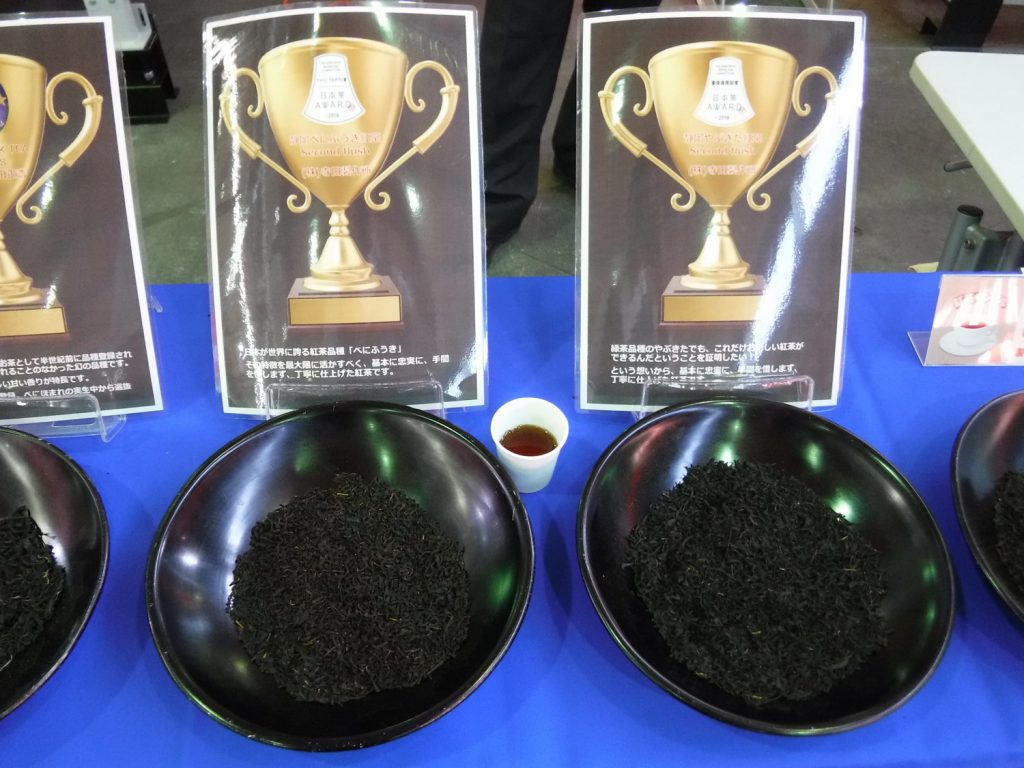
They exhibited the other awarded black teas produced by tea farmers using the tea machines of TERADA. “Momoka” produced by Imura-en and “’Izumi’ black tea” produced by Yoshida Chaen.
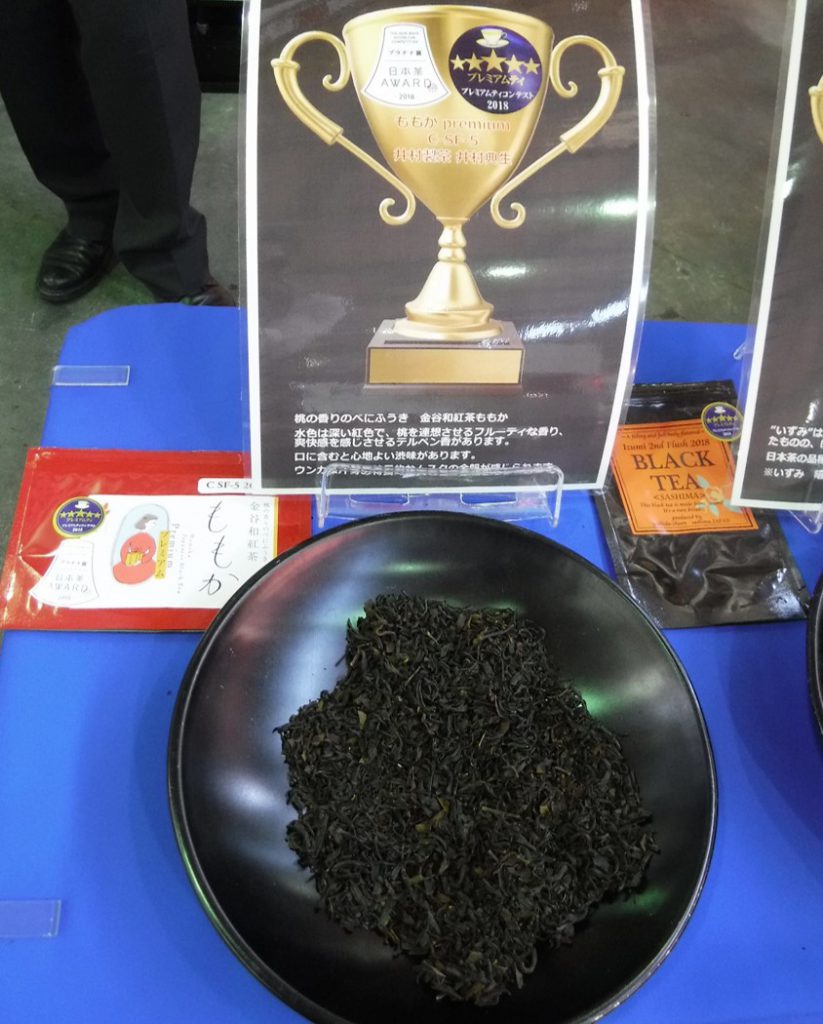
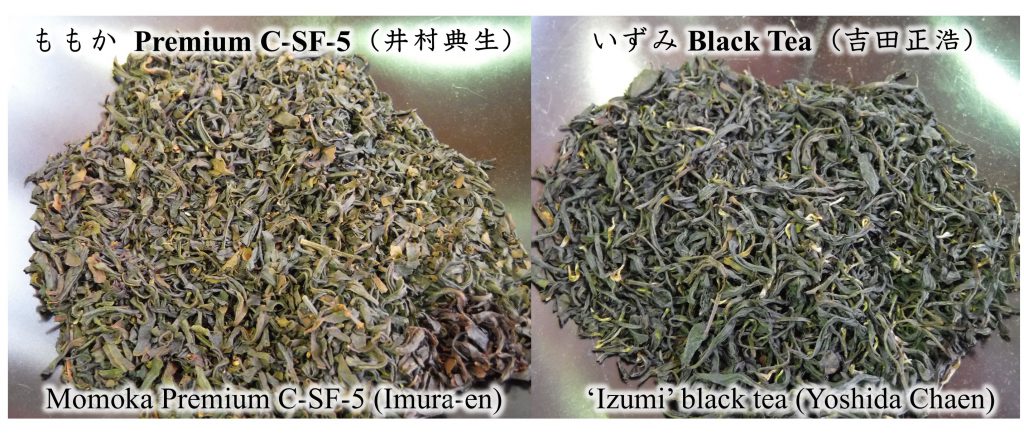
Kawasaki Kiko exhibited the awarded teas which are produced using tea machines of the company, such as the rotating drum for tea withering. Itomashi II is an oolong tea produced by the technical staff of Kawasaki Kiko, including the inventor. Surprisingly the oolong tea has creamy sweet aroma and light-bodied buttery texture.
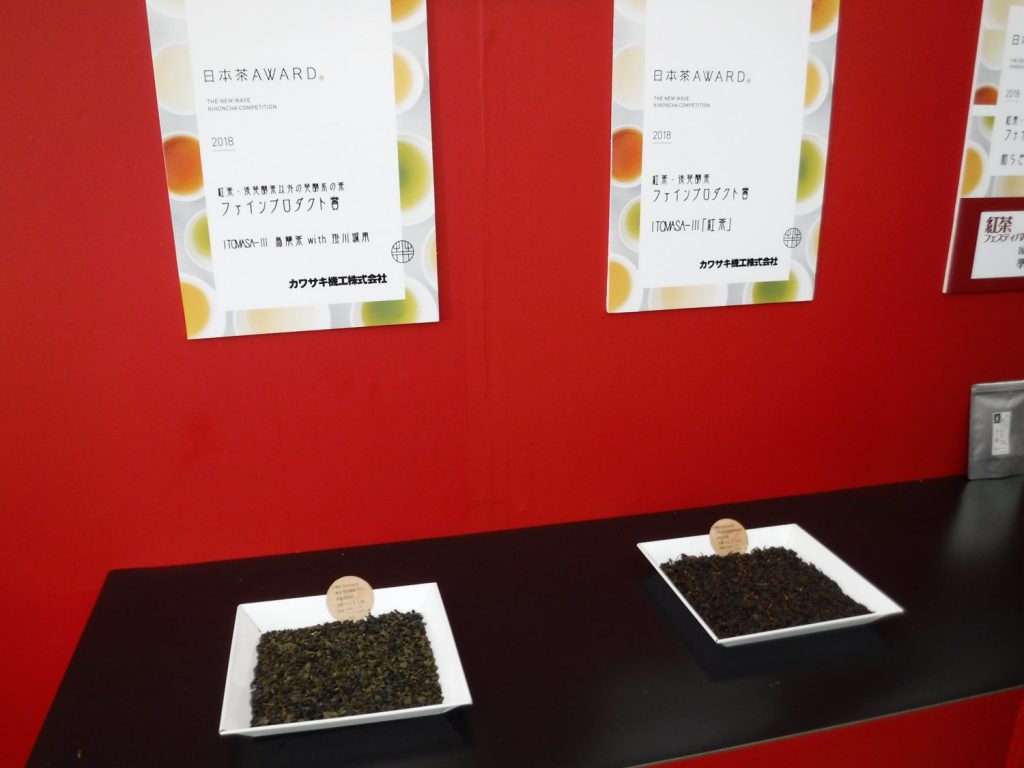
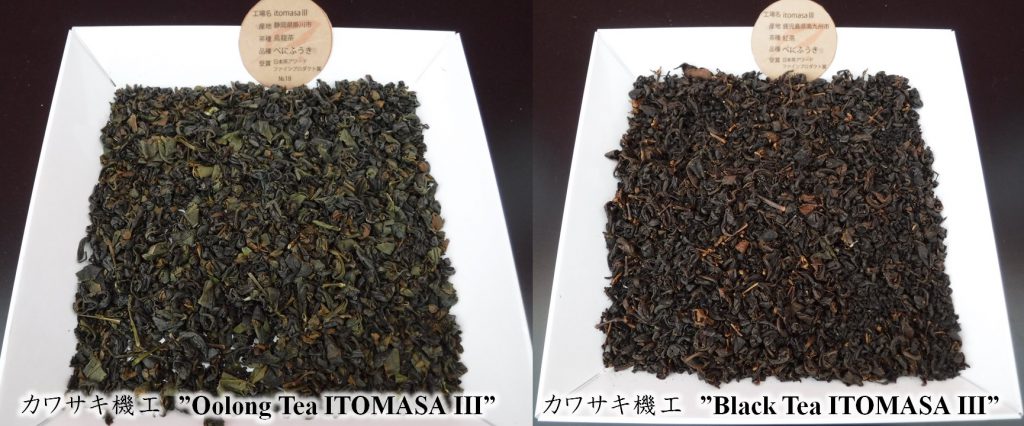
Based on the fact that amphiphilic compounds regulate the release of perfumes from beverage[554], I guess the buttery texture might be derived from terpenes themselves and complexes of terpenes and amphiphilic polymers. The withering process could generate various aroma of terpenes derived from terpene glycosides due to the internal enzymatic oxidation. The terpenes remaining in tea leaves’ cells could be extracted to the infusion and exist by themselves and some of them could form complexes with amphiphilic compounds.
I could meet the specialty black tea produced by SAMURAI teafarm, Makinohara Yamamoto-en.
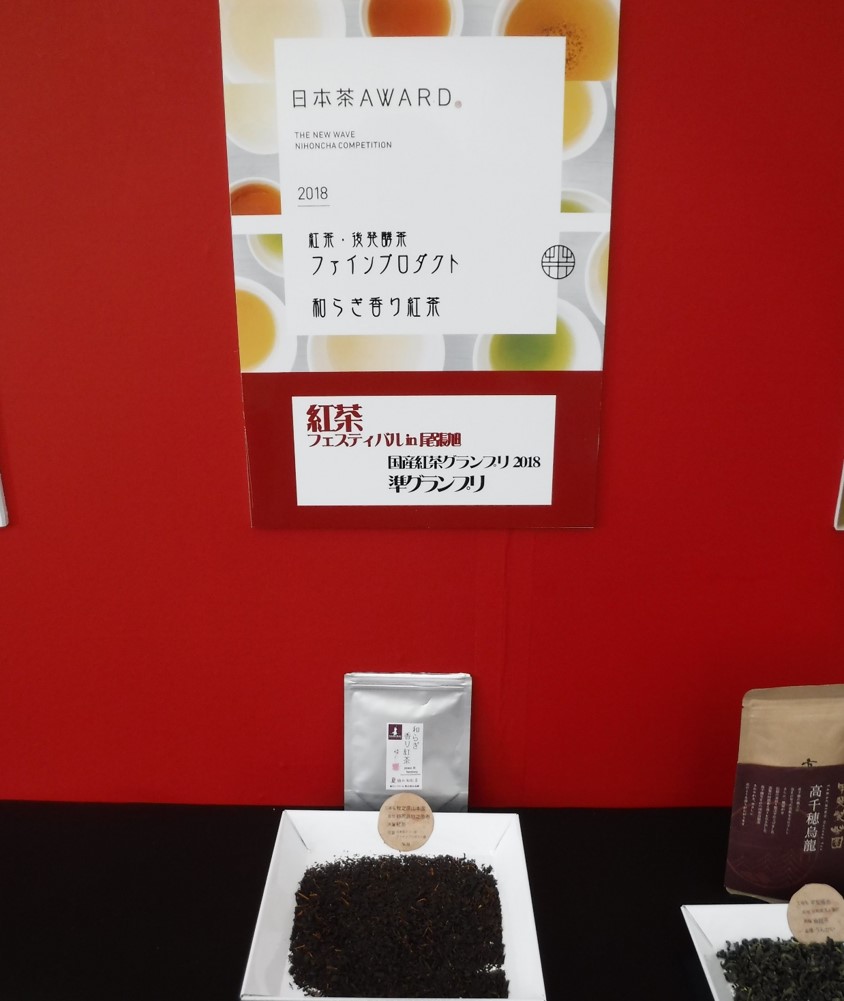
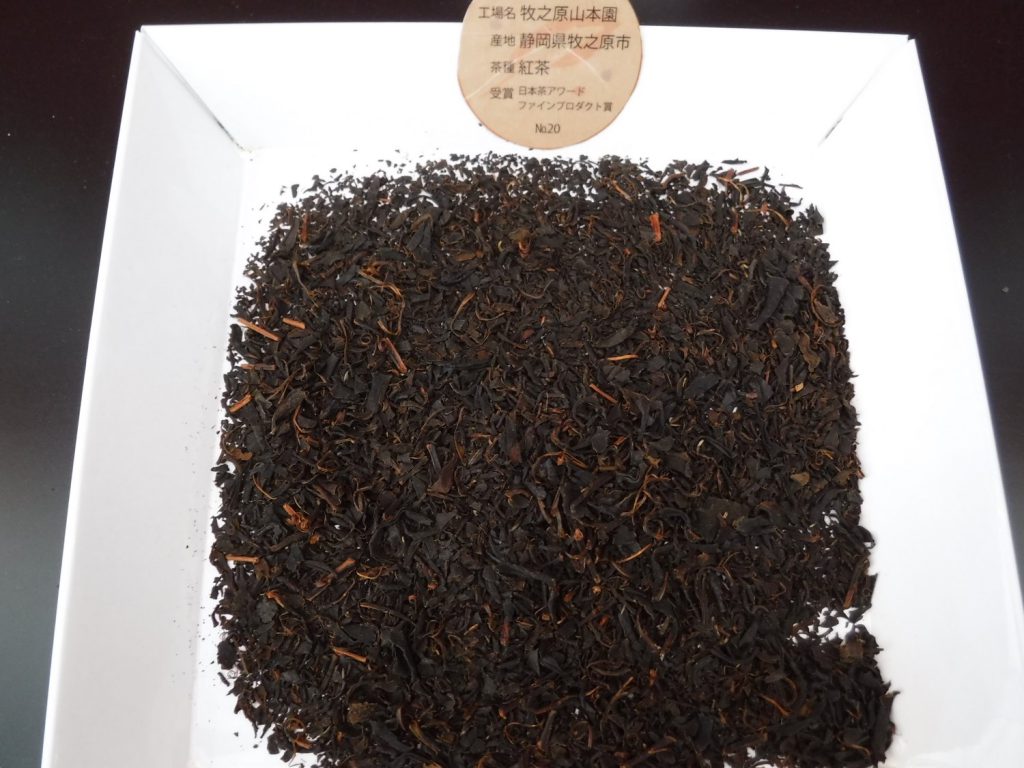
Mr. Yamamoto, the president of SAMURAI teafarm won the first prize in Japanese Black Tea Conference and the fine product award in Japanese Tea Award 2018.
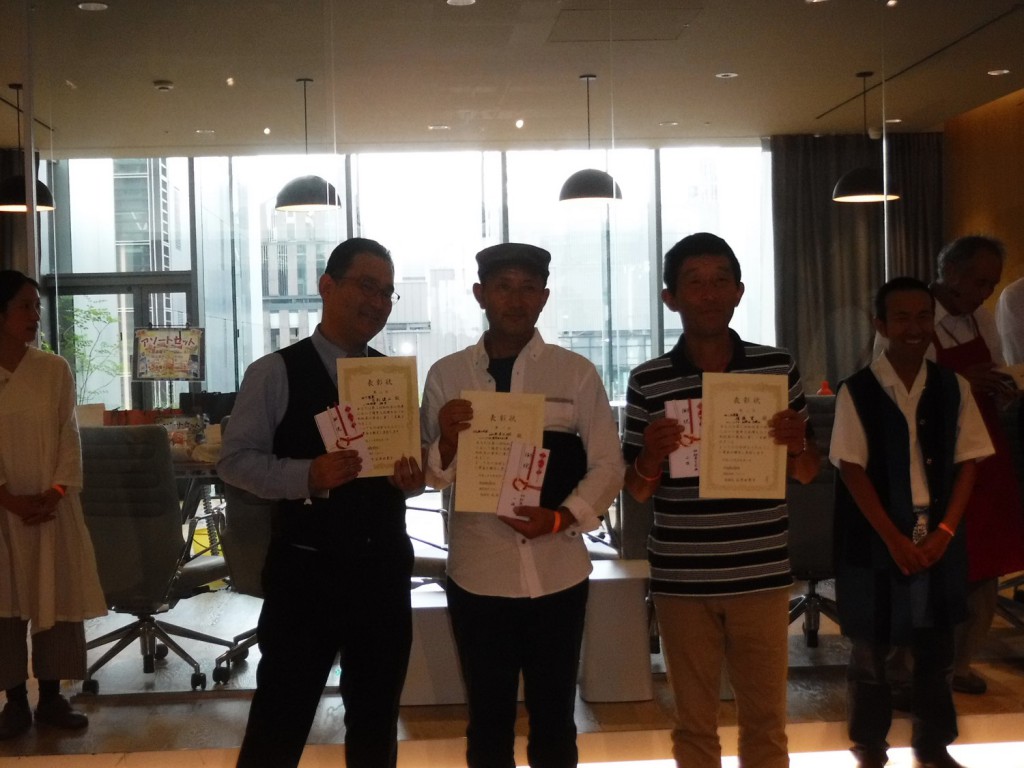
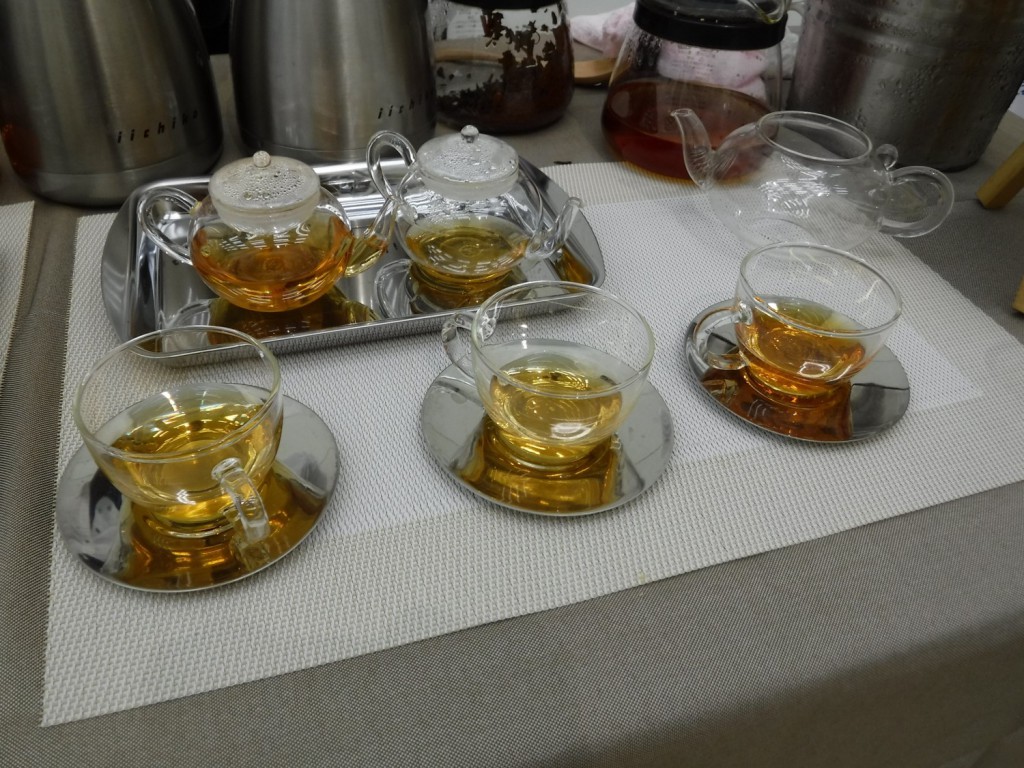
Beautiful amber color of each infusion attracts us. The left one is “Haruzumi Baisen”. As implied by the liquor color, the texture of left one is mild. The right one is “Natsuzumi Kocha” – summer plucked black tea. Its deeper amber color indicates its denser texture. I like this one too.
This black tea of second flush contains rich aroma like flower and fruits with medium bodied texture. The long aromatic finish especially delighted me! This black tea is a strongly recommended one. If you interested in this black tea, it is recommended to join Tokyo Tea Party 2018 on 1st and 2nd December or access the website of SAMURAI teafarm. (Unfortunately the website or SAMURAI teafarm is written only in Japanese, and the online shop could send the specialty tea only for domestic customers.)

Kawasaki Kiko exhibited the oolong and black teas produced by Kai Seicha in Takachiho tea estate, where 7 rotating drums have already installed into 5 tea farmers.
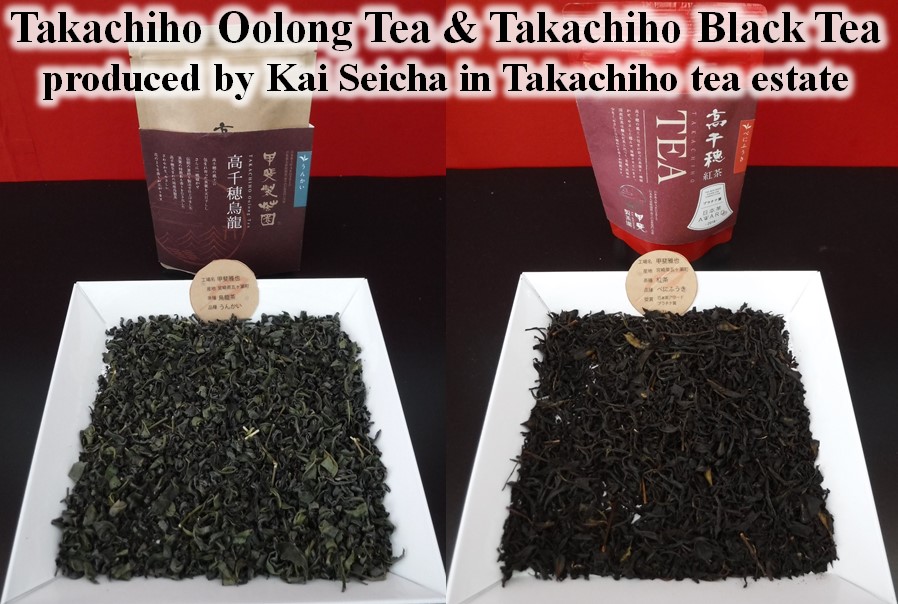
The oily luster appearance would indicate highly aromatic flavor of them!! These teas will be served in Tokyo Tea Party 2018.
< References >
[554] Tokuda Y.(2000) : Solubilization and Controlled Release of Perfumes in Aqueous Surfactant Solution, Journal of Oleo Science, 49:1383-1394.
